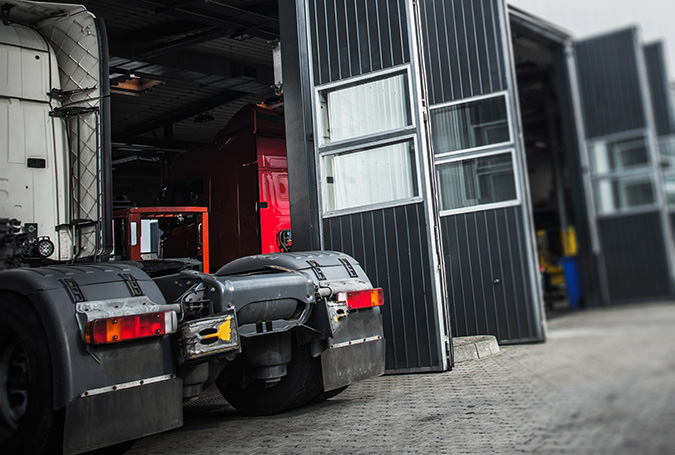If you have taken stock of our previous commentary, you will be acutely aware of our strong recommendations to incorporate your transport business. There is no good reason in this litigious landscape to put at risk your home and family assets. The burden of filing annual accounts and a confirmation statement should not be seen as a barrier to transferring your businesses into a limited company.
Assuming you have incorporated or are in the process of incorporating your transport business into a limited company, this article may be of further interest to you. In this article we are going to be looking at the benefits of introducing a holding company into the mix to provide more security, more flexibility and more tax efficiency to your business.
Depending on the size and structure of your business, a holding company can provide some real advantages, including:
· Reducing risk;
· Protecting assets;
· Providing centralised corporate control; and
· Offering a flexible structure for growth.
So what is a Holding Company?
A holding company is a company created to buy and own the shares of other companies. These other companies are known as the subsidiaries of the holding company. The holding company usually doesn’t produce goods or services, or take part in daily operations of the business. Instead, it often owns assets that its subsidiary companies use.
Business owners usually consider setting up a holding company and one or more subsidiaries to help structure their business as it grows. This is because the holding company can provide greater safeguards against risks and streamline operations for a business that’s still growing and diversifying.
So what are the benefits of a Holding Company?
Some say that 7 is the magic number, and so we have set out below 7 advantages of introducing a holding company into your corporate structure and explained briefly how this could help your business?
1. Protect Assets
A holding company can hold the valuable assets of a business. These assets may include:
· property, including your Operating Centre, Warehouse or Bus/Coach Depot;
· intellectual property;
· licences and authorisations; and
· equipment.
The subsidiary company then takes on the daily operations of the business and its trading responsibilities. The valuable assets held by the holding company are therefore protected from creditors and other liabilities that the operating company might incur. If you are a HGV business, you could even look at the possibility of placing one of you businesses most valuable assets, the Operators Licence, in the ownership of the Holding Company.
2. Reduce Risk
Where a holding company holds the valuable assets and is an entity separate from the operating company, the risk of losing those assets is minimised if the operating company performs poorly or becomes insolvent.
For example, if an operating company faces insolvency, the holding company may lose money too. However, they generally can’t be pursued legally for the responsibilities of the operating company. However, in some circumstances, the holding company can still be found liable for the actions of the operating company’s directors if they were aware of the poor performance.
3. Tax Efficiency
A holding company can be set up to efficiently manage the tax that the group as a whole has to pay. The main benefit is to enable it to safeguard retained profits.
Other examples include the ability to pass dividends to the holding company tax free and to sell shares in the trading company without having to pay corporation tax.
There are however stringent conditions that apply to the types of reliefs and exemptions referred to above, and these constitute a specialist area of tax advice. For this reason, none of the above should be undertaken without expert advice from professionals.
4. Central Control
Usually, the management of the holding company and the subsidiary company is controlled by the directors of the holding company. This provides a cohesive and centralised management structure that allows the holding company to maximise its performance and growth.
For example, the holding company directors may introduce a debt-structuring procedure that benefits all operating companies. A holding company may also help individual operating companies gain more favourable financing terms then if those companies were standing on their own.
5. Concentrate Property Assets
As the central holder of property assets, the holding company can deal with those assets for the benefit of the group as a whole. Subsequently, trading companies do not need to take the risk and time to do so.
6. Flexibility for Growth, Development and Diversification
Having the valuable assets held by the holding company allows the group to:
· diversify more efficiently;
· invest in new ventures; and
· exit ventures if needed.
The operating companies can take these steps without risk to the holding company and the wider group’s assets. A holding company gives greater power to the group and subsidiaries to invest in larger projects.
7. Succession Planning
A holding company, with a centralised board of directors, can ensure continuity of the business when key people from the operating companies leave.
Key Takeaways
Setting up a holding company can help your business grow while minimising some of the risks that come with this growth. You can gain benefits in:
· The operation of your company;
· Tax efficiency; and
· Financial advantages.
Separating property assets and using the buying power of a larger group can help a business grow in a more creatively and flexibly.
We are running a free seminar with Pierce Accountants at our Clitheroe office on 25 September 2019 on this and you can book your place here: https://www.backhousejones.co.uk/events/backing-your-business-e2-80-93-free-seminar/
If you have any questions about holding companies please do not hesitate to contact Brett Cooper on 01254 828300 or brett.cooper@backhouses.co.uk for a free and informal consultation.


